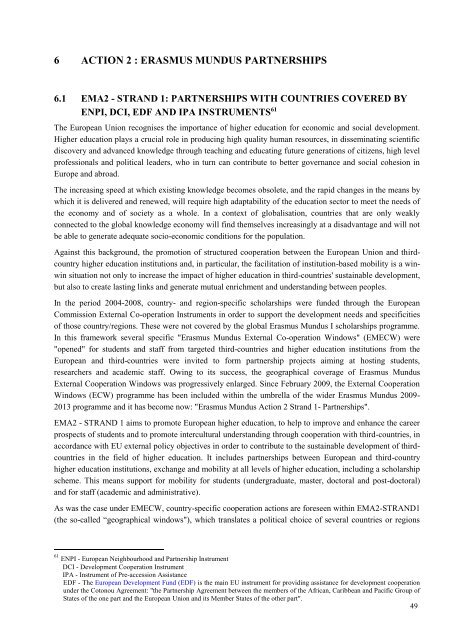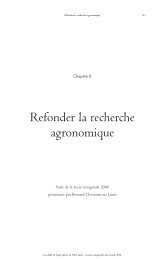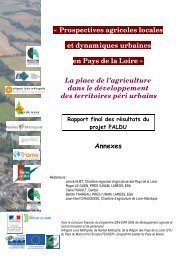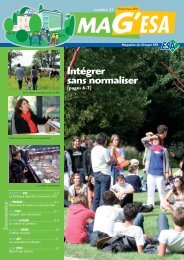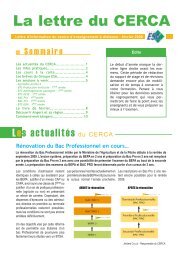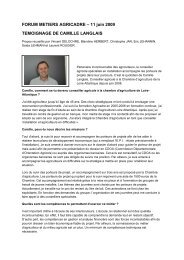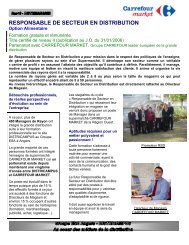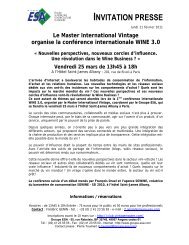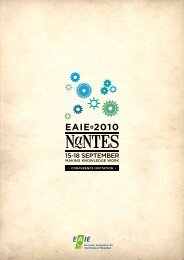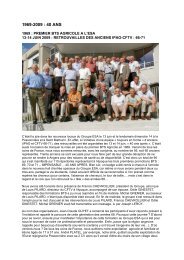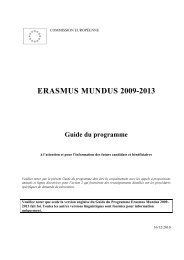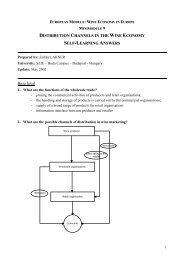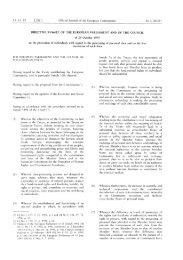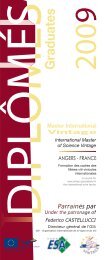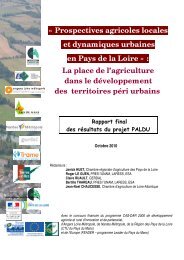ERASMUS Mundus Program Guide - EACEA - Europa
ERASMUS Mundus Program Guide - EACEA - Europa
ERASMUS Mundus Program Guide - EACEA - Europa
You also want an ePaper? Increase the reach of your titles
YUMPU automatically turns print PDFs into web optimized ePapers that Google loves.
6 ACTION 2 : <strong>ERASMUS</strong> MUNDUS PARTNERSHIPS<br />
6.1 EMA2 - STRAND 1: PARTNERSHIPS WITH COUNTRIES COVERED BY<br />
ENPI, DCI, EDF AND IPA INSTRUMENTS 61<br />
The European Union recognises the importance of higher education for economic and social development.<br />
Higher education plays a crucial role in producing high quality human resources, in disseminating scientific<br />
discovery and advanced knowledge through teaching and educating future generations of citizens, high level<br />
professionals and political leaders, who in turn can contribute to better governance and social cohesion in<br />
Europe and abroad.<br />
The increasing speed at which existing knowledge becomes obsolete, and the rapid changes in the means by<br />
which it is delivered and renewed, will require high adaptability of the education sector to meet the needs of<br />
the economy and of society as a whole. In a context of globalisation, countries that are only weakly<br />
connected to the global knowledge economy will find themselves increasingly at a disadvantage and will not<br />
be able to generate adequate socio-economic conditions for the population.<br />
Against this background, the promotion of structured cooperation between the European Union and thirdcountry<br />
higher education institutions and, in particular, the facilitation of institution-based mobility is a winwin<br />
situation not only to increase the impact of higher education in third-countries' sustainable development,<br />
but also to create lasting links and generate mutual enrichment and understanding between peoples.<br />
In the period 2004-2008, country- and region-specific scholarships were funded through the European<br />
Commission External Co-operation Instruments in order to support the development needs and specificities<br />
of those country/regions. These were not covered by the global Erasmus <strong>Mundus</strong> I scholarships programme.<br />
In this framework several specific "Erasmus <strong>Mundus</strong> External Co-operation Windows" (EMECW) were<br />
"opened" for students and staff from targeted third-countries and higher education institutions from the<br />
European and third-countries were invited to form partnership projects aiming at hosting students,<br />
researchers and academic staff. Owing to its success, the geographical coverage of Erasmus <strong>Mundus</strong><br />
External Cooperation Windows was progressively enlarged. Since February 2009, the External Cooperation<br />
Windows (ECW) programme has been included within the umbrella of the wider Erasmus <strong>Mundus</strong> 2009-<br />
2013 programme and it has become now: "Erasmus <strong>Mundus</strong> Action 2 Strand 1- Partnerships".<br />
EMA2 - STRAND 1 aims to promote European higher education, to help to improve and enhance the career<br />
prospects of students and to promote intercultural understanding through cooperation with third-countries, in<br />
accordance with EU external policy objectives in order to contribute to the sustainable development of thirdcountries<br />
in the field of higher education. It includes partnerships between European and third-country<br />
higher education institutions, exchange and mobility at all levels of higher education, including a scholarship<br />
scheme. This means support for mobility for students (undergraduate, master, doctoral and post-doctoral)<br />
and for staff (academic and administrative).<br />
As was the case under EMECW, country-specific cooperation actions are foreseen within EMA2-STRAND1<br />
(the so-called “geographical windows"), which translates a political choice of several countries or regions<br />
61 ENPI - European Neighbourhood and Partnership Instrument<br />
DCI - Development Cooperation Instrument<br />
IPA - Instrument of Pre-accession Assistance<br />
EDF - The European Development Fund (EDF) is the main EU instrument for providing assistance for development cooperation<br />
under the Cotonou Agreement: "the Partnership Agreement between the members of the African, Caribbean and Pacific Group of<br />
States of the one part and the European Union and its Member States of the other part".<br />
49


